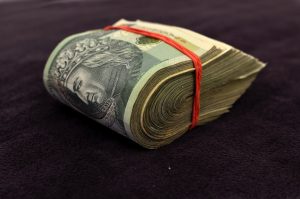As a forex trader, you may be wondering when you have to pay taxes on your profits. The answer to this question can be complicated, as it depends on several factors. In this article, we will go over some of the key things that you should know about paying taxes as a forex trader in the United States.
Firstly, it is important to understand that forex trading is considered to be a form of investment, and as such, it is subject to the same tax laws as other forms of investing. This means that any profits you make from forex trading are subject to capital gains tax.
In general, capital gains tax is a tax on the profit made from the sale of an asset. The tax rate on capital gains varies depending on how long you held the asset before selling it. If you held the asset for less than a year, you will be subject to short-term capital gains tax, which is typically higher than long-term capital gains tax. If you held the asset for more than a year, you will be subject to long-term capital gains tax, which is usually lower than short-term capital gains tax.
When it comes to forex trading, the tax rules are the same as those for other forms of investment. This means that if you make a profit from forex trading, you will be subject to capital gains tax. The tax rate that you will pay will depend on how long you held the forex asset before selling it.
Another important thing to note is that forex trading losses can be used to offset other capital gains. This means that if you have a loss from forex trading, you can use that loss to offset gains from other investments. This can help to reduce your overall tax liability.
It is also important to keep in mind that if you are a full-time forex trader, you may be able to deduct certain expenses related to your trading activities. This can include things like internet and phone bills, trading software, and other expenses that are directly related to your trading activities. These deductions can help to reduce your taxable income and lower your overall tax bill.
When it comes to paying taxes on forex trading profits, there are a few key things to keep in mind. Firstly, you will be subject to capital gains tax on any profits that you make. The tax rate that you will pay will depend on how long you held the forex asset before selling it.
Secondly, if you have losses from forex trading, you may be able to use those losses to offset other capital gains. This can help to reduce your overall tax liability.
Finally, if you are a full-time forex trader, you may be able to deduct certain expenses related to your trading activities. This can help to reduce your taxable income and lower your overall tax bill.
In conclusion, paying taxes as a forex trader can be complicated, but it is important to understand the rules in order to avoid any potential legal issues. By keeping these key points in mind, you can ensure that you are in compliance with the tax laws and that you are maximizing your profits while minimizing your tax liability.





